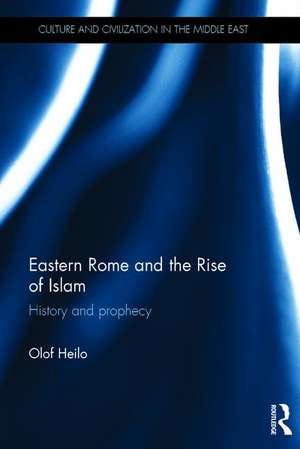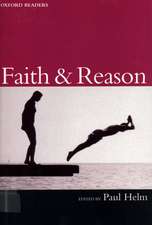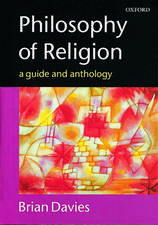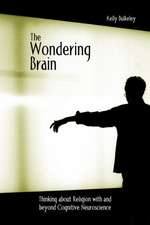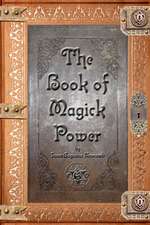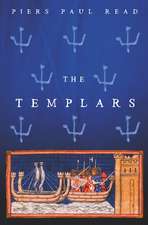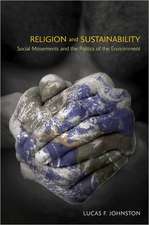Eastern Rome and the Rise of Islam: History and Prophecy: Culture and Civilization in the Middle East
Autor Olof Heiloen Limba Engleză Hardback – 3 dec 2015
It is by way of this concept that Olof Heilo presents the decline of the Eastern Roman Empire as a key to understanding the rise of Islam; two historical processes often perceived as distinct from one another. Eastern Rome and the Rise of Islam highlights significant convergences between Early Islam and the Late Ancient world. It suggests that Islam’s rise is a feature of a common process during which tensions between imperial ambitions and apocalyptic beliefs in Europe and the Middle East cut straight across today’s theological and political definitions. The conquests of Islam, the emergence of the caliphate, and the transformation of the Roman and Christian world are approached from both prophetic anticipations in the Ancient and Late Ancient world, and from the Medieval and Modern receptions of history. In the shadow of their narratives it becomes possible to trace the outline of a shared history of Christianity and Islam. The "Dark Ages" thus emerge not merely as a tale of sound and fury, but as an era of openness, diversity and unexpected possibilities.
Approaching the rise of Islam as a historical phenomenon, this book opens new perspectives in the study of early religion and philosophy, as well as providing a valuable resource for students and scholars of Islamic Studies.
| Toate formatele și edițiile | Preț | Express |
|---|---|---|
| Paperback (1) | 416.22 lei 6-8 săpt. | |
| Taylor & Francis – 6 dec 2017 | 416.22 lei 6-8 săpt. | |
| Hardback (1) | 1052.35 lei 6-8 săpt. | |
| Taylor & Francis – 3 dec 2015 | 1052.35 lei 6-8 săpt. |
Din seria Culture and Civilization in the Middle East
- 9%
 Preț: 1004.73 lei
Preț: 1004.73 lei -
 Preț: 310.41 lei
Preț: 310.41 lei -
 Preț: 326.49 lei
Preț: 326.49 lei -
 Preț: 421.61 lei
Preț: 421.61 lei - 18%
 Preț: 1067.49 lei
Preț: 1067.49 lei - 18%
 Preț: 1165.97 lei
Preț: 1165.97 lei - 18%
 Preț: 1168.76 lei
Preț: 1168.76 lei -
 Preț: 484.04 lei
Preț: 484.04 lei - 18%
 Preț: 1057.75 lei
Preț: 1057.75 lei - 18%
 Preț: 1068.18 lei
Preț: 1068.18 lei - 18%
 Preț: 1203.90 lei
Preț: 1203.90 lei -
 Preț: 413.13 lei
Preț: 413.13 lei - 8%
 Preț: 382.66 lei
Preț: 382.66 lei - 16%
 Preț: 272.83 lei
Preț: 272.83 lei -
 Preț: 493.80 lei
Preț: 493.80 lei -
 Preț: 418.22 lei
Preț: 418.22 lei - 26%
 Preț: 819.48 lei
Preț: 819.48 lei - 18%
 Preț: 1113.25 lei
Preț: 1113.25 lei - 18%
 Preț: 1113.60 lei
Preț: 1113.60 lei -
 Preț: 451.32 lei
Preț: 451.32 lei - 18%
 Preț: 1062.98 lei
Preț: 1062.98 lei - 15%
 Preț: 418.04 lei
Preț: 418.04 lei - 18%
 Preț: 1059.84 lei
Preț: 1059.84 lei - 18%
 Preț: 1060.87 lei
Preț: 1060.87 lei - 18%
 Preț: 1057.40 lei
Preț: 1057.40 lei - 26%
 Preț: 822.01 lei
Preț: 822.01 lei -
 Preț: 498.91 lei
Preț: 498.91 lei - 18%
 Preț: 1058.79 lei
Preț: 1058.79 lei - 18%
 Preț: 1049.19 lei
Preț: 1049.19 lei - 18%
 Preț: 998.71 lei
Preț: 998.71 lei - 18%
 Preț: 1098.11 lei
Preț: 1098.11 lei -
 Preț: 496.35 lei
Preț: 496.35 lei - 18%
 Preț: 1121.60 lei
Preț: 1121.60 lei - 18%
 Preț: 1055.32 lei
Preț: 1055.32 lei - 18%
 Preț: 1168.06 lei
Preț: 1168.06 lei - 18%
 Preț: 1168.76 lei
Preț: 1168.76 lei - 18%
 Preț: 1054.97 lei
Preț: 1054.97 lei - 18%
 Preț: 1224.24 lei
Preț: 1224.24 lei -
 Preț: 484.47 lei
Preț: 484.47 lei - 18%
 Preț: 1067.14 lei
Preț: 1067.14 lei - 26%
 Preț: 821.10 lei
Preț: 821.10 lei - 22%
 Preț: 312.77 lei
Preț: 312.77 lei - 26%
 Preț: 763.78 lei
Preț: 763.78 lei
Preț: 1052.35 lei
Preț vechi: 1283.35 lei
-18% Nou
Puncte Express: 1579
Preț estimativ în valută:
201.42€ • 207.57$ • 170.05£
201.42€ • 207.57$ • 170.05£
Carte tipărită la comandă
Livrare economică 03-17 martie
Preluare comenzi: 021 569.72.76
Specificații
ISBN-13: 9781138101388
ISBN-10: 1138101389
Pagini: 162
Ilustrații: 3 black & white illustrations, 2 black & white halftones, 1 black & white line drawings
Dimensiuni: 156 x 234 x 11 mm
Greutate: 0.39 kg
Ediția:1
Editura: Taylor & Francis
Colecția Routledge
Seria Culture and Civilization in the Middle East
Locul publicării:Oxford, United Kingdom
ISBN-10: 1138101389
Pagini: 162
Ilustrații: 3 black & white illustrations, 2 black & white halftones, 1 black & white line drawings
Dimensiuni: 156 x 234 x 11 mm
Greutate: 0.39 kg
Ediția:1
Editura: Taylor & Francis
Colecția Routledge
Seria Culture and Civilization in the Middle East
Locul publicării:Oxford, United Kingdom
Public țintă
Postgraduate and UndergraduateCuprins
Prologue 1. A Broken Colossus 2. Taming Leviathan 3. Shadows at Dusk 4. Eyes in the Dark 5. New Horizons 6. Cultural Capitals Epilogue
Recenzii
"This short book is a veritable effort of genuine scholarship and is valuable to students and scholars of Islamic studies, especially for its new perspectives." Issa J. Boullata - Middle East Media and Books Reviews Online
Descriere
It is by way of this concept that Olof Heilo presents the decline of the Eastern Roman Empire as a key to understanding the rise of Islam; two historical processes often perceived as distinct from one another. Eastern Rome and the Rise of Islam highlights significant convergences between Early Islam and the Late Ancient world. It suggests that Islam’s rise is a feature of a common process during which tensions between imperial ambitions and apocalyptic beliefs in Europe and the Middle East cut straight across today’s theological and political definitions. The conquests of Islam, the emergence of the caliphate, and the transformation of the Roman and Christian world are approached from both prophetic anticipations in the Ancient and Late Ancient world, and from the Medieval and Modern receptions of history. In the shadow of their narratives it becomes possible to trace the outline of a shared history of Christianity and Islam. The "Dark Ages" thus emerge not merely as a tale of sound and fury, but as an era of openness, diversity and unexpected possibilities.
